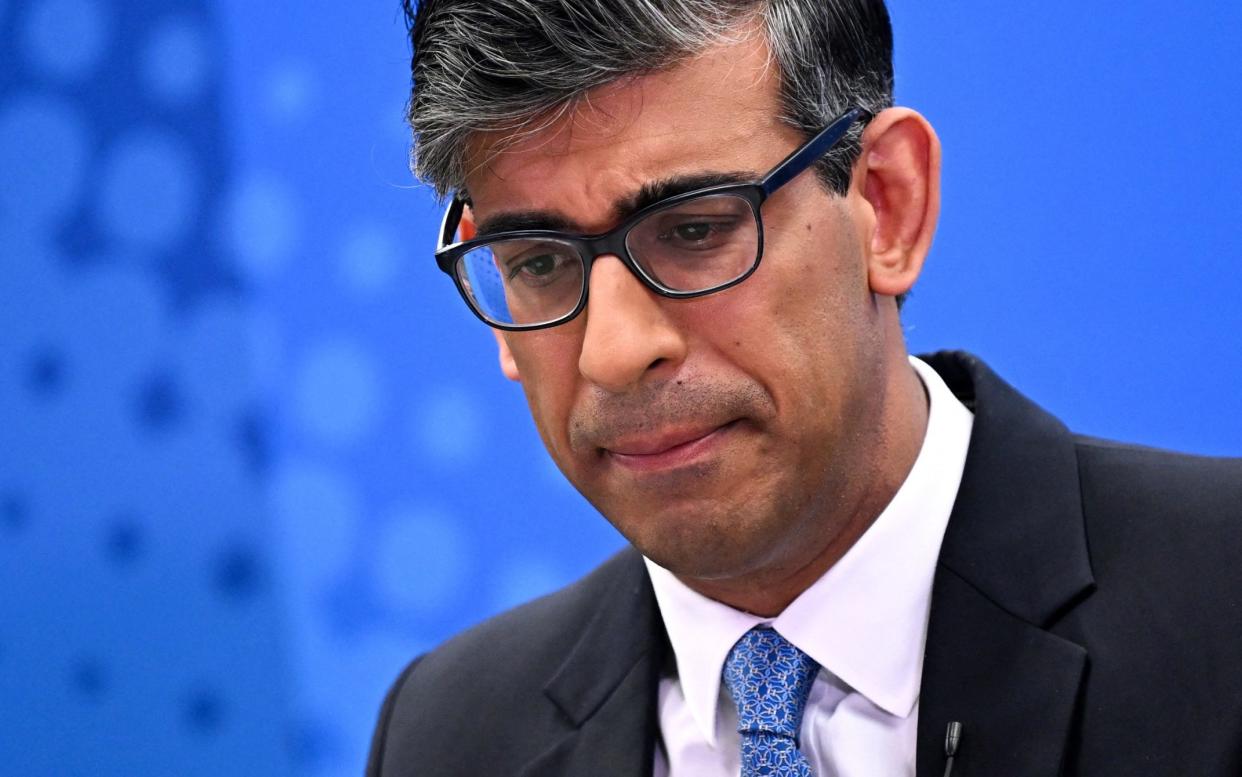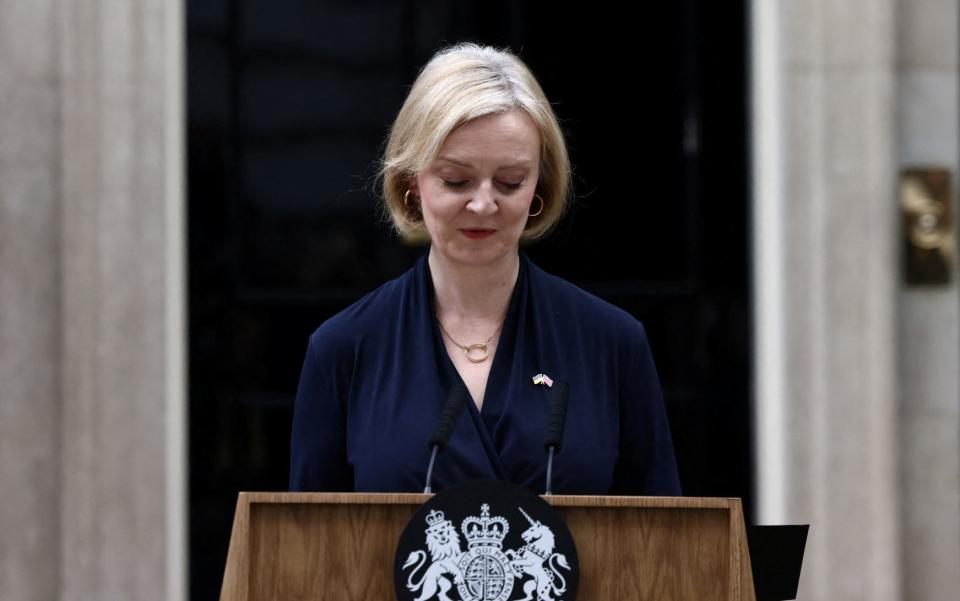Sunak predicted Truss’s implosion – he will be proved right on Labour too

- Oops!Something went wrong.Please try again later.
- Oops!Something went wrong.Please try again later.
Let me take you back, if you can bear it, to the Tory leadership election in the summer of 2022.
It’s the last week of July. Rishi Sunak pops up in a Barbour jacket – with some leafy-looking scenery in the background – talking about the “extremely precious” green belt. The use of “green belt land for development” is unacceptable, he says. If elected leader by the Tory grassroots, and therefore prime minister, he will “put a stop to it”.
It was the strangest of sights. As chancellor, Sunak had had a sterling reputation inside the Treasury. He was consistently praised during his time in No 11 for understanding the UK’s productivity problems – and certainly the laws of supply and demand – better than most.
When did he become such an avid defender of the so-called green belt, which swallows up prime development sites? What could his motivation be to protect unproductive agricultural land and derelict car parks, rather than to build new homes?
It was a strategy we’ve become familiar with in this general election: a play to the base.
The first major poll of the leadership campaign had dropped the week before, showing Liz Truss dominating the race. Days later, the Barbour was out in full force.
While Sunak did manage to narrow the gap in the polls between himself and Truss, he still decisively lost the leadership election. It wasn’t until the Truss premiership imploded – and Sunak’s warnings about her borrow-and-spend agenda were proven quickly and spectacularly right – that he got his chance in No 10.

But have the past 20 months reflected the real Rishi Sunak? Has he been the classical liberal and fiscal hawk that he established himself as in the Treasury?
He tied his own hands on housing during the leadership race, which meant that there was very little he could do to signal any kind of housebuilding initiative once he took charge. Rather, he had to scrap housing targets, as the Nimbys in his own party managed to force his hand.
And what about inflation, the biggest domestic crisis of the past three years? Sunak knew better than anyone that it is a phenomenon that is largely outside any government’s ability to control. He was one of the few people in the UK, after all, to predict a price spiral, using his Budget back in March 2021 to try to shield the public finances from what was about to hit.
Yet he spent his time in No 10 banking on the idea that falling inflation could be attributed to actions taken by his government – something which never led to a bounce in the polls. The news this week that inflation returned to its target in May should have been a crowd-cheering moment. Yet the event passed, fairly quietly, as people continue to feel the effects of price rises that have simply slowed in pace.
There has been no love dished out for this government over its handling of the inflation crisis – but nor should there be. Sunak knew all too well in the Treasury that there was no controlling it (that’s a matter for the Bank of England). The biggest thing he could do was mitigate against the consequences of higher borrowing costs.
There are, of course, certain policies that it’s harder to talk about when you have the top job – made even more difficult in an election year. No-one would realistically expect, for example, the Tories to scrap the triple lock on the state pension so close to an election.
But how did Sunak end up being the politician who proposed a “triple lock plus”, which sees the tax threshold for pensioners rise but not for workers? This is the same man who, when he was chancellor, led the charge to reform the triple lock during Covid: an opportunity, he and other Tories thought, to address its expense and also intergenerational unfairness.
Just as the Barbour didn’t sit right with voters in the summer of 2022, many of Sunak’s current policies don’t sit right now. Part of the problem is that much of what’s been done over the past 20 months has been exaggerated: the Conservatives have not been “cutting taxes” as they insist, but have been raising the burden to a near-record high.
The reductions to National Insurance (a tax Sunak tried to increase as chancellor; then made his primary focus for cuts as prime minister) only account for a fourth of the cash being raised by freezes on tax thresholds.
But this broader attempt – to say what this government thinks voters want to hear – explains the curious concoction of proposals in the Tory manifesto. From National Service to a hard cap on migration figures, these are not policies that seem authentic to the Prime Minister.
The irony of all this is that the public tends to respond well to Sunak when he’s clearly passionate about what he’s advocating. The only time during his premiership when the polls seemed to start to shift was when he delayed several net zero targets for cars and heat pumps. It wasn’t the easiest argument to make, but the Prime Minister was in his element – tackling the cost of living crisis – and the public seemed to catch on.
Even in this week’s BBC Question Time special, the only applause Sunak received came after blunt remarks from the Prime Minister – the kind he doesn’t usually let slip. “I was right” he said, without wavering, about his decision to stand up to Truss’s spending plans. “What Keir Starmer is promising you is the same fantasy that Liz Truss did.”
Some fund managers are suggesting that Labour will have a freer hand to borrow than imagined: a remarkable claim, looking at the most recent debt projections, which show net debt exceeding £3 trillion by the end of the next parliament. Sunak knows from experience which way that goes. His attempt to warn against such things, as unpopular as it might be, is when he performs best – and gets the best response.
There are uncanny parallels between the 2022 leadership election and this general election. If the polls are correct, Sunak will lose – again. And unless the next government unearths a magic money tree, his warnings about what comes next are likely to prove savvy – again.
One must wonder why Prime Minister Sunak didn’t let these insights shine through a little more during his premiership. Perhaps it would have led to different results.
Kate Andrews is Economics Editor at The Spectator

